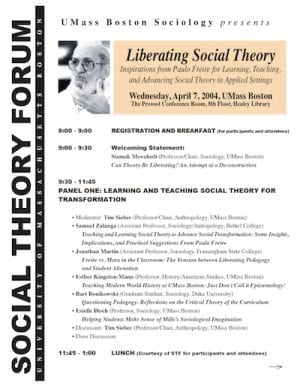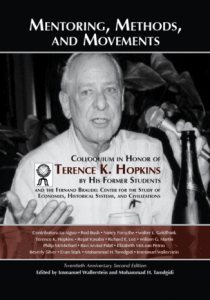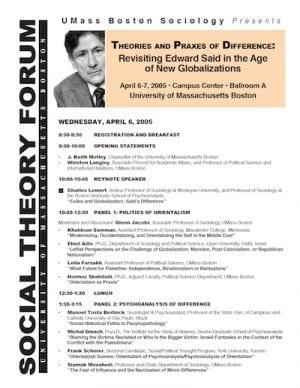Proceedings Journal Article — Commentary: Transformation of the Self: Pedagogies from the Margin — by Emmett Schaefer
$15.00
A central theme of the third panel has been the reclaiming of certain marginalized social theorists as theorists.
Description
Abstract
A central theme of the third panel has been the reclaiming of certain marginalized social theorists as theorists. Charles Cooley and Georg Simmel,essayists with a literary bent, have been deemed insufficiently “serious.” Oliver Cox has been considered either too Black or too radical to beincluded in the pantheon of social theorists. Octavio Paz, classified as a “writer,” a “man of letters,” has seldom been recognized as a social scientist. Charlotte Perkins Gilman, a lesbian socialist, found it so difficult to be taken seriously as a theorist that she turned to writing novels, a choice ofmedium of expression that has further contributed to her marginalization as a social theorist. G. I. Gurdjieff, an eastern mystic, and Jelalludin Rumi, a Sufi “ecstatic” poet, have presumably had nothing to offer “rational” Western science. Margulies, in her study of why she smokes, clearly felt the need to understand her habit at multiple levels, the least of which being the rational. In her attention to the subconscious and the emotional, as well as in her self-reflexivity, Margulies seems thoroughly modern (or more precisely, post-modern). In fact what characterizes many of the common themes in the panelists’ presentations and in the theorists they’ve chosen to study, is postmodernism. And Freire himself, although the standard insome circles, is far from that in mainstream academic discourse. What emerges from listening to the marginal voices represented here is the broaderaim of the panel to follow Friere’s counsel to “reinvent” him for a new era, maintaining a Freirean “critical edge not just towards the world but also towards his own words.”
Recommended Citation
Schaefer, Emmett. 2004. “Welcoming.” Pp. yyy in Liberating Social Theory: Inspirations from Paulo Freire for Learning, Teaching, and Advancing Social Theory in Applied Settings: Proceedings of the First Annual Social Theory Forum, April 7, 2004, UMass Boston (Discourse of Sociological Practice, Vol. 6, Issues 2, Fall 2004). Issue Guest Editor: Mohammad H. Tamdgidi. Sociology Department, UMass Boston.
Read the Above Publication Online
You can read the above publication free-access online, by clicking the PDF icon below.









